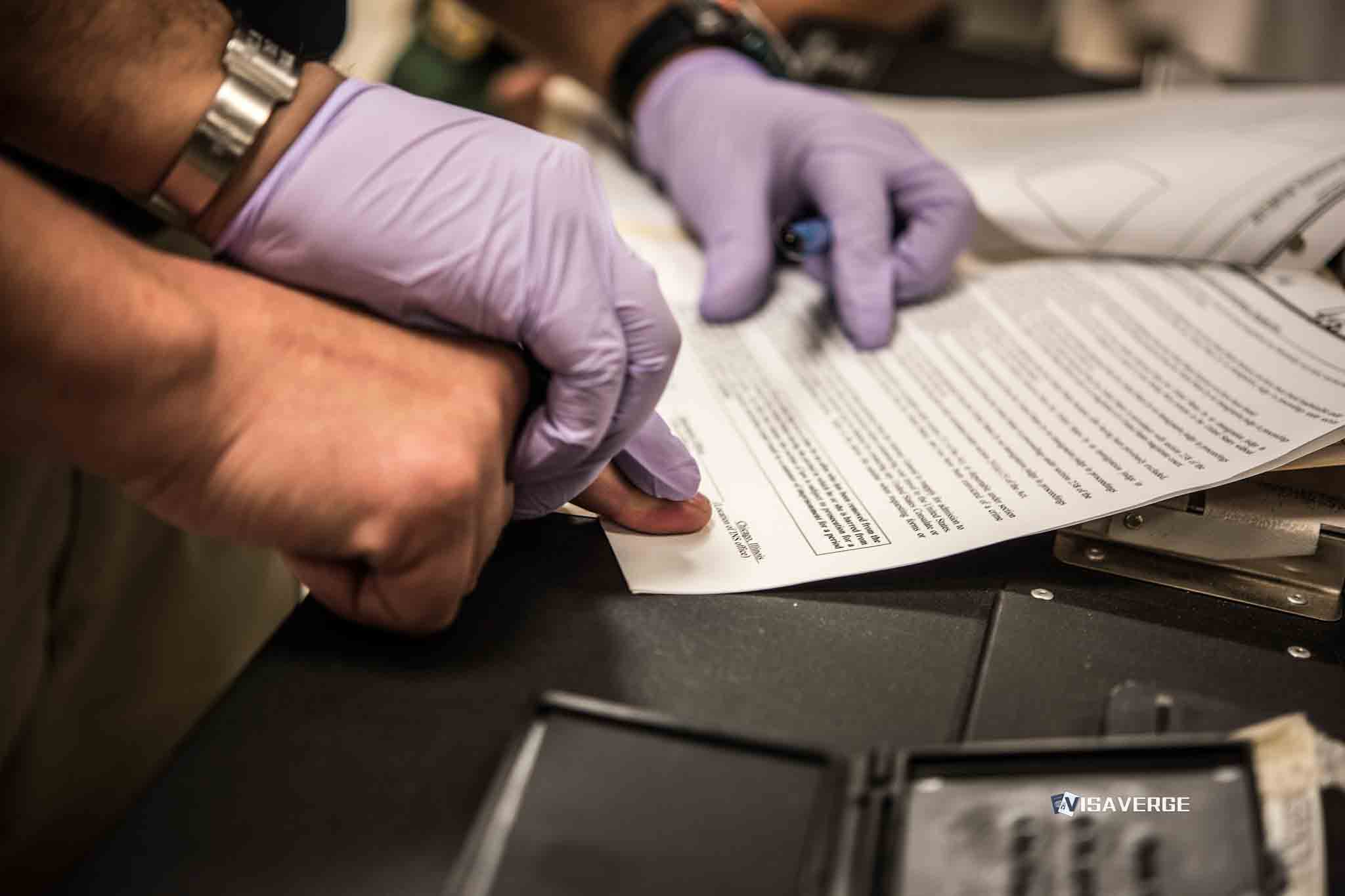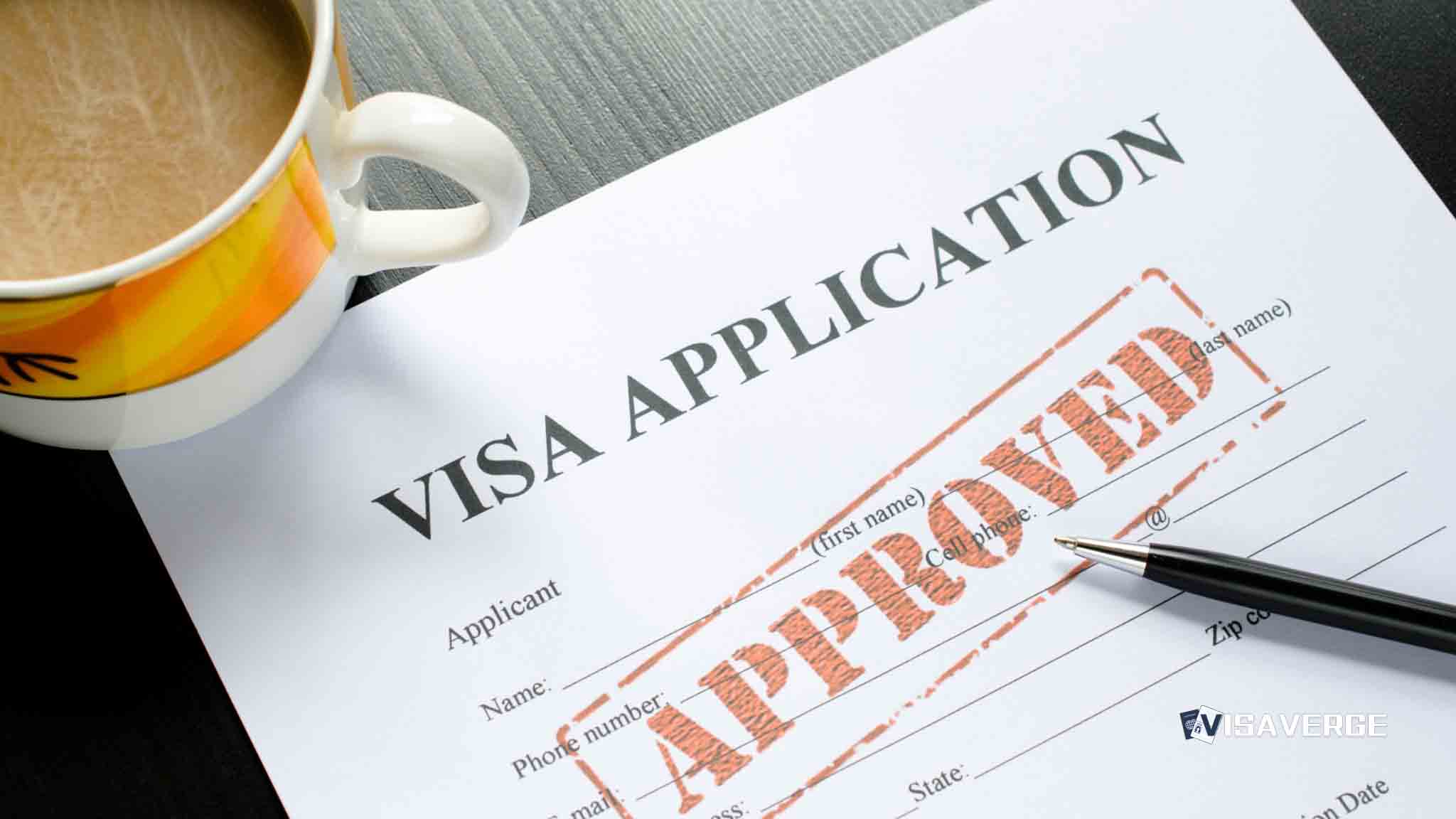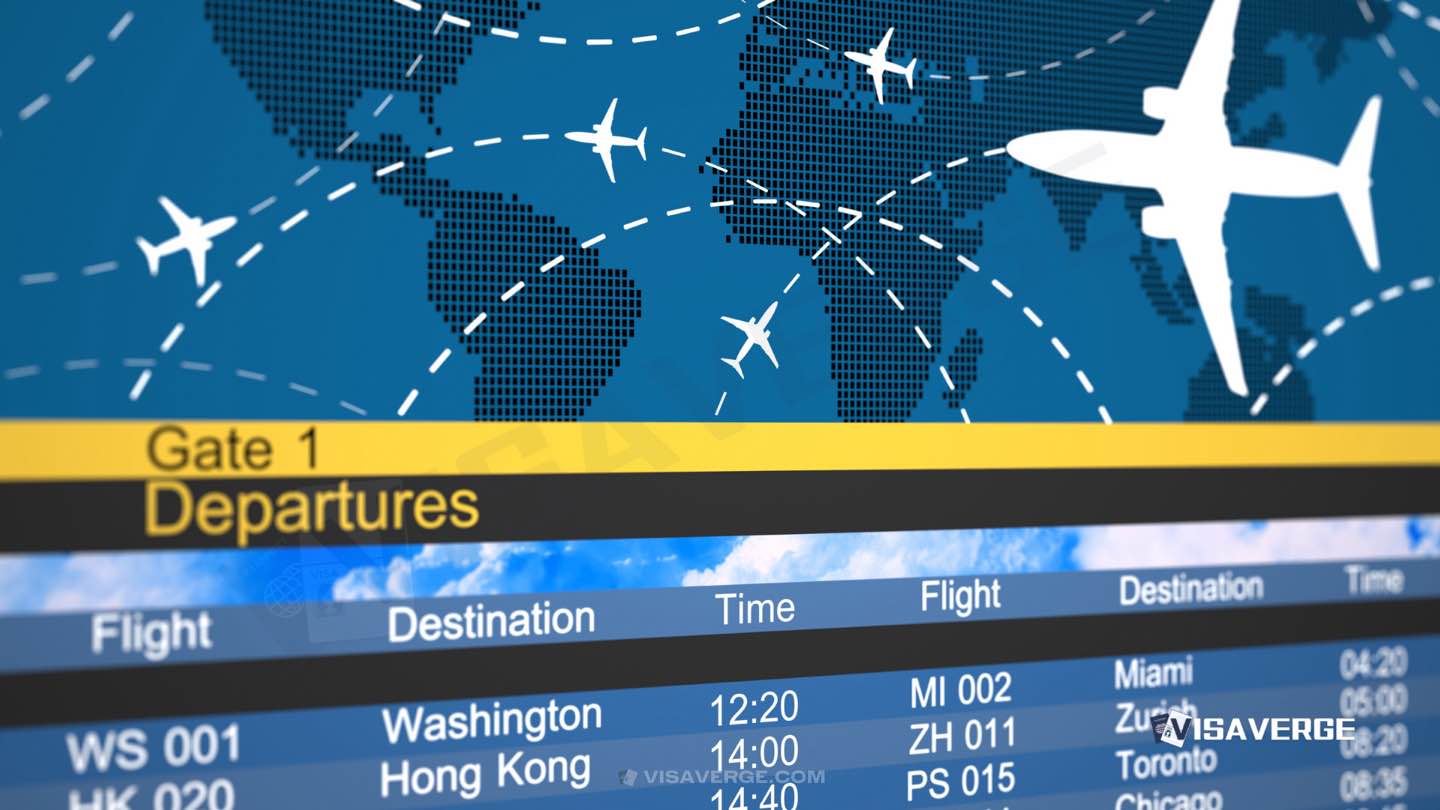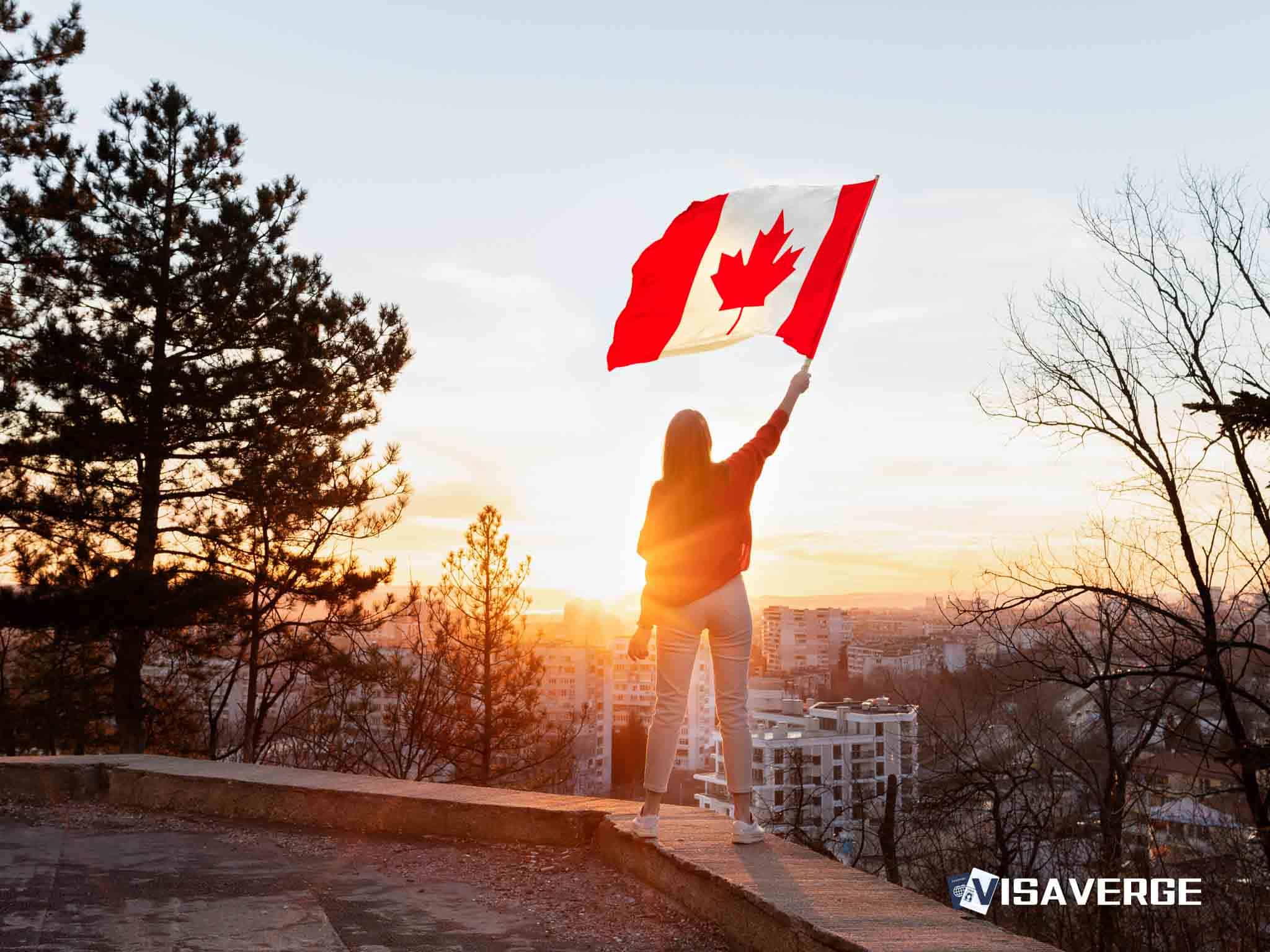Key Takeaways
• March 2025 revocation of humanitarian parole affects 300,000 Cuban migrants in the U.S.
• End of CHNV parole program leaves Cubans in legal limbo amid increased detentions.
• Cuban Adjustment Act offers permanent residency after one year, now a crucial legal path.
The Trump Administration’s ICE Crackdown Leaves Cuban Immigrants Facing Deportation and Uncertainty
In June 2025, the Trump administration’s immigration crackdown has taken a sharp turn, putting thousands of Cuban immigrants in the United States 🇺🇸 at risk of detention and deportation. The recent revocation of humanitarian parole for about 300,000 Cuban migrants, along with the end of the Cuba, Haiti, Nicaragua, and Venezuela (CHNV) parole program, has left many in the Cuban-American community feeling anxious and betrayed. This policy shift has not only changed the legal landscape for Cuban immigrants but also divided families and communities, especially in South Florida.

Who Is Affected and What Has Changed?
The most recent changes began in March 2025, when the Trump administration revoked temporary humanitarian parole for approximately 300,000 Cuban migrants. Humanitarian parole is a special permission that allows people to enter or stay in the United States 🇺🇸 for urgent humanitarian reasons. Many Cubans had relied on this status to live and work legally while waiting for a more permanent solution.
At the same time, the CHNV parole program, which had allowed certain Cubans to enter the United States 🇺🇸 legally, was officially ended after the U.S. Supreme Court lifted an injunction that had blocked its termination. This left many Cubans who had entered under this program in a state of legal limbo, unsure of what would happen next.
Why Is This Happening Now?
The Trump administration has made immigration enforcement a top priority, focusing on groups that were previously protected or overlooked. According to analysis from VisaVerge.com, the administration’s actions are seen by some as a way to appeal to hardline voters, especially in the Cuban-American community, while also sending a message that no group is exempt from strict immigration laws.
How Are Cuban Immigrants Being Impacted?
The effects of the ICE crackdown are being felt across the Cuban-American community, especially in places like Miami, where many Cuban immigrants live. The revocation of humanitarian parole and the end of the CHNV program have led to:
- Increased detentions: U.S. Immigration and Customs Enforcement (ICE) has begun detaining Cuban immigrants who were previously allowed to stay under humanitarian parole or the CHNV program.
- Deportation threats: Many Cubans now face the real possibility of being deported, even if they have lived in the United States 🇺🇸 for years and followed all legal requirements.
- Community division: The Cuban-American community is split. Some support the deportation of former Cuban officials for national security reasons, while others feel betrayed by the sudden policy changes.
A Personal Story: Ariel Lara’s Detention
One of the most striking examples of the new policy’s impact is the case of Ariel Lara, a Cuban activist who was detained by ICE despite being part of the CHNV parole program. Lara’s attorney, Wilfredo Allen, says that while Cubans can still apply for protections under the Cuban Adjustment Act, the fear among migrants has grown sharply. Lara’s detention has become a symbol of the uncertainty facing many Cuban immigrants today.
The Cuban Adjustment Act: A Lifeline for Some
Despite the crackdown, the Cuban Adjustment Act of 1966 remains in place. This law allows Cuban immigrants to apply for permanent residency (a green card) after living in the United States 🇺🇸 for at least one year and one day, as long as they meet certain conditions. For many, this is now the only clear path to legal status.
To apply under the Cuban Adjustment Act, immigrants must:
- Have been admitted or paroled into the United States 🇺🇸
- Have lived in the country for at least one year and one day
- Be admissible as a permanent resident
More information about the Cuban Adjustment Act and how to apply can be found on the USCIS official website.
What Should Cuban Immigrants Do Now?
For those caught up in the ICE crackdown, there are several important steps to take:
- Apply for Cuban Adjustment Act Protections: If you have been in the United States 🇺🇸 for at least one year and one day and meet the requirements, you can apply for permanent residency under the Cuban Adjustment Act. This is often done by filing Form I-485, Application to Register Permanent Residence or Adjust Status.
- Seek Legal Representation: If you are facing deportation or detention, it is important to speak with an immigration attorney. Legal experts can help you understand your options and guide you through the process.
- Stay Informed: Immigration policies can change quickly. Keep up-to-date with the latest news and official announcements from agencies like U.S. Citizenship and Immigration Services (USCIS) and U.S. Immigration and Customs Enforcement (ICE).
Community Reaction: Fear, Division, and Advocacy
The Cuban-American community, which numbers about 2.4 million people in the United States 🇺🇸, has long enjoyed a special status in the immigration system. For decades, Cubans fleeing the communist government in Cuba were welcomed and given a path to legal residency. Now, that sense of security has been shaken.
- Support for Deportation: Some members of the community, especially those who oppose the Cuban government, support the deportation of former Cuban officials. They argue that these individuals could pose a threat to national security.
- Feelings of Betrayal: Others, especially those who have followed all legal steps, feel betrayed by the sudden change in policy. Many worry that they or their loved ones could be next, even if they have done everything right.
Eduardo Gamarra, a Latin American expert at Florida International University, explains that the recent detentions are seen by some as a political move to gain support from hardline Cuban-American voters. At the same time, he notes that many in the community are now afraid that they could be targeted, regardless of their background or history.
Legal and Political Perspectives
Wilfredo Allen, a Miami-based immigration attorney, stresses the importance of legal representation for those facing deportation. He points out that while the Cuban Adjustment Act still offers a path to legal status, the process can be complicated and stressful, especially with the increased risk of detention.
From a political standpoint, the Trump administration’s actions are viewed as both a way to enforce immigration laws and a strategy to appeal to certain voters. However, the policy shift has also sparked criticism from those who believe it unfairly targets a vulnerable group.
Background: How Did We Get Here?
Cuban immigrants have a unique history in the United States 🇺🇸. Since the Cuban Revolution in 1959, the U.S. government has offered special protections to Cubans fleeing communism. The Cuban Adjustment Act of 1966 was a key part of this policy, allowing Cubans to become permanent residents after just one year in the country.
Over the years, other programs, like humanitarian parole and the CHNV parole program, provided additional ways for Cubans to enter and stay in the United States 🇺🇸. These programs were seen as a lifeline for those escaping difficult conditions in Cuba.
However, recent years have seen a shift. The Trump administration has focused on stricter enforcement of immigration laws, ending many programs that once protected Cuban migrants. The revocation of humanitarian parole and the end of the CHNV program mark a major change in how Cuban immigrants are treated.
Implications for Stakeholders
The ICE crackdown and policy changes have wide-reaching effects:
- For Cuban Immigrants: Many now face the risk of detention and deportation, even if they have lived in the United States 🇺🇸 for years. The fear and uncertainty are especially hard for families who have built their lives here.
- For the Cuban-American Community: The community is divided, with some supporting the crackdown for security reasons and others feeling abandoned by the government.
- For Immigration Attorneys and Advocates: Legal experts are seeing an increase in clients seeking help, especially those who need to apply for protection under the Cuban Adjustment Act or fight deportation orders.
- For U.S. Policy Makers: The situation highlights the challenges of balancing national security with humanitarian concerns and the rights of immigrants.
What Happens Next?
Looking ahead, several things could shape the future for Cuban immigrants in the United States 🇺🇸:
- Continued Enforcement: The Trump administration is expected to keep up its strict immigration enforcement, which could lead to more detentions and deportations.
- Legal Challenges: Some advocacy groups and attorneys may challenge the policy changes in court, which could affect how they are carried out.
- Community Advocacy: The Cuban-American community may continue to push for changes to immigration policies, especially those that affect families and long-term residents.
Practical Guidance for Those Affected
If you or someone you know is affected by the ICE crackdown, here are some practical steps to take:
- Check Your Status: Make sure you know your current immigration status and whether you are eligible to apply for permanent residency under the Cuban Adjustment Act.
- Gather Documents: Keep all important documents, such as proof of entry, proof of residence, and any paperwork related to your immigration case, in a safe place.
- Find Legal Help: Contact a qualified immigration attorney who can help you understand your rights and options. Many legal aid organizations offer free or low-cost services.
- Stay Updated: Follow official sources like USCIS and ICE for the latest information on policy changes and procedures.
Key Resources
- USCIS Green Card for Cuban Natives or Citizens: USCIS Green Card for Cubans
- ICE Official Website: ICE
- Form I-485, Application to Register Permanent Residence or Adjust Status: Form I-485
Conclusion: A Time of Uncertainty and Change
The recent ICE crackdown and policy changes have created a climate of fear and uncertainty for Cuban immigrants in the United States 🇺🇸. While the Cuban Adjustment Act still offers a path to legal status for some, the end of humanitarian parole and the CHNV program means that many are now at risk of detention and deportation.
The Cuban-American community is facing difficult choices, with some supporting the crackdown for national security reasons and others feeling betrayed by the loss of long-standing protections. As the Trump administration continues its enforcement efforts, legal challenges and community advocacy may shape the future for Cuban immigrants.
For those affected, the most important steps are to stay informed, seek legal help, and make use of available protections under the law. The situation remains fluid, and staying connected to official sources and trusted legal advisors is more important than ever.
As reported by VisaVerge.com, the story of Cuban immigrants in the United States 🇺🇸 is changing rapidly, with new challenges and opportunities emerging every day. For many, the hope is that a fair and humane solution can be found—one that respects both the rule of law and the contributions of immigrants to American society.
Learn Today
Humanitarian Parole → Temporary permission to enter or stay in the U.S. for urgent humanitarian reasons.
CHNV Parole Program → A parole program that allowed Cuban, Haitian, Nicaraguan, and Venezuelan migrants legal entry.
Cuban Adjustment Act → 1966 law granting Cubans a path to permanent residency after one year in the U.S.
ICE (Immigration and Customs Enforcement) → U.S. federal agency enforcing immigration laws, including detentions and deportations.
Form I-485 → Application to register permanent residence or adjust immigration status in the United States.
This Article in a Nutshell
The Trump administration’s 2025 ICE crackdown targets thousands of Cuban immigrants by ending humanitarian parole and CHNV programs, risking deportations. The Cuban Adjustment Act remains vital for permanent residency but uncertainty divides the Cuban-American community as detentions rise, prompting urgent calls for legal aid and action.
— By VisaVerge.com













